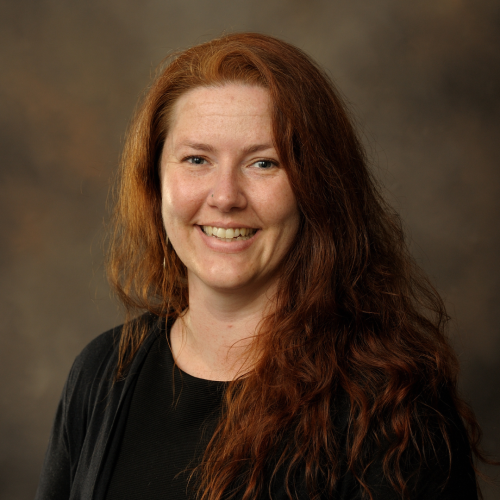A toolkit for public librarians can help them use data to communicate the value of their services and justify their funding needs. The Data Storytelling for Librarians Toolkit helps librarians present data in story form using narrative strategies. It was developed by University of Illinois Urbana-Champaign information sciences professors.
"A well-told library data story today means a public library will be there for the next generation and the next generation," said information sciences professor Kate McDowell, who specializes in data storytelling. McDowell leads the toolkit project with information sciences professors Matthew Turk and Jill Naiman, who specialize in data visualization.
McDowell and Turk spent several years talking with library staff around the country through interviews, surveys, questionnaires and focus groups. They worked with a design group made up of library professionals to create a modular toolkit to help libraries solve problems.
McDowell said she expected to hear about problems with budgets and staffing, but instead the library staff members wanted to better advocate for their libraries. The types of stories they wanted to tell fell into three categories — sharing achievements; benchmarking to compare a library's progress in a particular area over time or with similar libraries; and providing justifications for investments.
The toolkit helps libraries make use of the vast amount of data they collect on all aspects of their functions, including the number of cardholders, how many books are checked out, how long printed books and ebooks circulate, how many people visit the library and how many people attend library programs. They also track the demographics of the communities they serve, including the number of school-age children and older people, and the languages spoken by residents. Some of the data is collected for required reports, and it helps libraries determine their budgets and areas of investment, McDowell said.
The amount of data can be overwhelming, and library staff members often are uncertain of how to use it in telling their stories or reluctant to do so, she said.
"There is a concern that it will infuse emotion into the data and it will become a confabulation if it's turned into a story," McDowell said. "I remind people that emotion is already present in our interactions with libraries and public data. We are already making judgments about what we count."
The toolkit helps librarians determine the audience for a message and how best to reach it; describes types of narrative structures and a framework for using data in stories; and provides examples for communication related to various motivations and goals. Librarians can work through all the sections or choose the area in which they need help.
"They may have a great story but a problematic audience. They may know the audience but need to figure out a narrative structure to reach them," McDowell said.
The toolkit includes a data visualization tool developed by Turk and Naiman. A survey found that for an overwhelming number of people responding, their main data tool is Excel, McDowell said. The prototype tool offers a tutorial for new users and a configurable dashboard and flexible tools for more seasoned data experts. Users can try out using the tool with their own data.
The section on audience attitudes includes strategies for communicating to a polarized audience. McDowell said she and Turk started the project to help libraries maintain their funding in chaotic times, but the amount of disinformation now circulating makes it more difficult to provide accurate information to the public.
"Instead of focusing on how to get the public to understand true things, we look at how to get professionals to communicate true things in effective ways," she said.
That is needed more than ever, with an increasing number of efforts to ban books and defund libraries, McDowell said. Communication is especially important at local levels where the decisions are made about library funding, she said.
"Librarians being positioned to defend public libraries as institutions with accurate, compelling data stories is a defense of democracy," McDowell said.
During the past year, McDowell has been speaking to local, national and international library groups about data storytelling and the toolkit. She's presented a series of webinars about the project. The final, free webinar is July 17. She will publish a book this fall that expands on the information presented in the data storytelling toolkit.
A grant from the Institute of Museum and Library Services helped McDowell and Turk develop the toolkit, and they've applied for a second phase of the grant to continue work on the toolkit and incorporate it into the Public Library Association's data tools.


